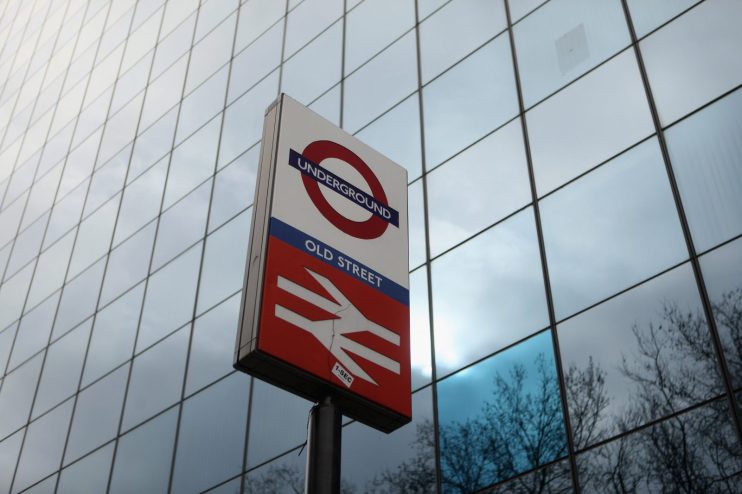Silicon Roundabout: What will London’s tech hub look like after lockdown?

The cluster of tech companies in East London, also known as Silicon Roundabout, was largely born out of the last financial crisis after soaring rents pushed companies out.
This time round the fate of East London may look a little different as tech companies make remote working the norm.
Remote working is here to stay
City A.M. spoke to a number of East London tech firms who said the switch to remote working in the first lockdown was far easier than they anticipated.
While the big beasts of the City struggled with getting IT equipment to thousands of employees smaller startups largely had the infrastructure in place already.
“The pandemic hasn’t impacted our growth at all… Our employees have been able to adapt very well to working from home during the government restrictions,” Victor Trokoudes, chief executive and co-founder of fintech Plum said.
But remote working has not been without its challenges. Startups have been hit hard by the pandemic not least the inability to access government funding because they’re usually pre-profit and often pre-revenue.
Office space therefore adds another cost to already dwindling funds so it is understandable some firms are looking at scaling back office space.
Office space too high a cost for some early stage startups
Startups’ cost structure is focused on people and office space. “If you’re an early stage startup and for the first six months you don’t have to pay for desks that’s a huge cost saver,” Tim Groot, chief executive of networking startup Grip.
“We’ve gone from 14 to 70 people [in the last year]. If I have to get an office for 70 people that’s a lot of money but it’s important people have the ability to actually meet.”
Similarly Trokoudes said it was highly unlikely his team would return to the office five days a week.
Inquiries for office space in Shoreditch and Old Street represented just four per cent of total enquiries in the capital in the first quarter of this year, according to office provider Kitt.
“Tech businesses don’t have the same structural requirements for an office that a multinational does and they’re able to make decisions very quickly when they decide to return to the office. They don’t need a six month lead time,” Kitt chief executive Steve Coulson said.
Indeed Silicon Roundabout is mourning the loss of one of the area’s first office spaces, Tech Hub.
The space was home to hundreds of startups in the area for a decade before filing for administration last summer. It said it had lost three quarters of its revenues as the lockdown prevented members from using the space.
‘People are desperate to be around each other’
Where corporates have had to scale back on office space and make redundancies as they focus on their bottom lines, some tech firms are enjoying meteoric growth.
With growth comes more employees, more office space and the need for more collaboration.
“I don’t think we’ll go fully remote, I think that would be a mistake, I’m thinking about a flexible subscription to office space,” Groot said.
Stakester boss Tom Farey, who cannot stand the idea of indefinite remote working, has tripled the size of his office space in the area.
“We invested in a bigger office because real estate is cheap but at the same time because people are desperate to be around each other,” he told City A.M.
The convenience of home working has been a rare light during three lockdowns but it also comes hand in hand with loneliness and boredom. Collaboration is especially central in the day-to-day running of a rapidly scaling company.
“This talent pool particularly values the culture of the business they join, and the social connections they form,” Coulson said. “People didn’t join high growth, vibrant companies to then not spend time with the people.”
Co-working spaces as the future?
So if companies want the best of both worlds but can’t afford the long leases what does the future look like for Silicon Roundabout?
The pandemic represents an opportunity to move away from a traditional office or indeed someone’s living room into a collaborative space.
Co-working spaces have been popping up for years in East London but it will be the spaces that don’t just offer a desk but opportunities for networking and social events will be key in the post-pandemic landscape.
Andrew Roughan, managing director of coworking space Plexal, said he had seen inquiries about flexible space triple in the last three weeks. Based at the Here East campus in the Olympic Park Plexal acts as office space as well as an “innovation centre”.
“People have said we will no longer lease property in the way we used to do. We want a flexible solution so we can decide with our colleagues and co-workers, we can decide the future shape and size of the organisation,” he told City A.M.
Here East’s chief executive Gavin Poole said 2020 had surprisingly been their best year yet as existing tenants doubled down on their existing space.
“It’s easy to say we need more flexible space but what kind of flexible space do you need and why? We’ve had to work hard to try and address how we create those creative workshops, how we bring people together,” Poole said.
Most interestingly of the companies already heading back they’re starting to reconfigure the space away from desk space to creative communal space, he added.
The shift to co-working space is far better-suited to Tech City than the Square Mile because it reflects the more flexible ethos of tech startups.
Silicon Roundabout may look different but it is very much here to stay.